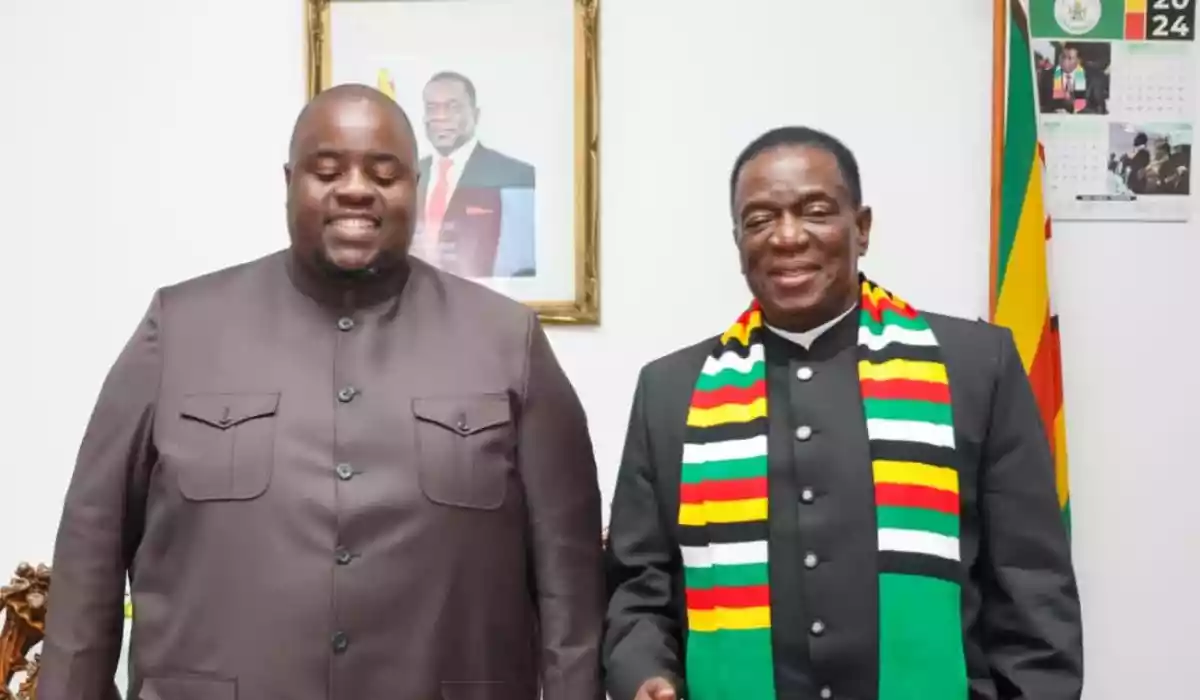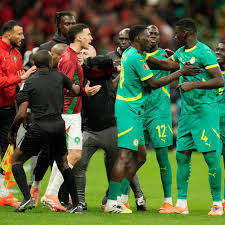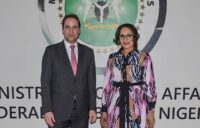Wicknell Chivayo, one of Zimbabwe’s most flamboyant and controversial businessmen, continues to polarize public opinion across the country and beyond with his extraordinary displays of wealth, high-profile philanthropy, and unshakable ties to the ruling elite. Known for giving away luxury vehicles, wads of cash, and even houses to musicians, churchgoers, and political loyalists, Chivayo, who refers to himself as “Sir Wicknell” has become the face of Zimbabwe’s “flex culture,” an aspirational and often contentious celebration of conspicuous wealth.
In a country plagued by economic hardship, high unemployment, and deep inequality, the 44-year-old mogul has made a habit of gifting Range Rovers, Toyota SUVs, Mercedes-Benzes, and other high-end vehicles to public figures, gospel singers, church leaders, athletes, and individuals aligned with the ruling Zanu-PF party. His latest high-profile gift went to Afrobeats star Jah Prayzah: a 2025 Range Rover Autobiography worth over $150,000, complete with a personalized plate and a congratulatory note celebrating his “patriotism” and unifying power through music.
These giveaways are frequently publicized via Chivayo’s vibrant Instagram account, where he shares photos of balloon-decorated vehicles, often parked outside Harare’s top dealerships, with captions announcing the recipient and pickup instructions. In many cases, the beneficiaries have never met him in person.
Beyond cars, Chivayo has also provided housing and education scholarships, especially to members of his apostolic faith, the Zion Christian Church. He positions himself as a “self-made millionaire” who rose from poverty in the Harare township of Chitungwiza, where he was raised by his mother after losing his father at the age of 10.
Despite his self-promoted narrative of hustle and hard work, questions continue to swirl around the true source of his fortune. His history includes a stint in prison for fraud, during which he famously shared a cell block with British mercenary Simon Mann, who later described Chivayo as “well-educated” and politically savvy. In his memoir, Mann quoted Chivayo cautioning him against criticizing Zanu-PF, suggesting an early understanding of the value of political alignment.
Chivayo’s fortunes changed in 2013 when his company, Intratrek Zimbabwe, secured a $172.8 million contract to construct a 100MW solar power plant in Gwanda. The project was later marred by allegations of non-performance, leading to legal battles. Chivayo was accused of receiving advance payments without delivering results, but he eventually won his case and was acquitted of all charges.
His defenders see him as a product of Zimbabwe’s 2013 indigenisation policy, which was meant to economically empower black Zimbabweans by requiring foreign-owned companies to cede 51% ownership. Chivayo has credited Zanu-PF’s policies for his success and is a known supporter of President Emmerson Mnangagwa. He has frequently posted photos alongside African presidents, including Tanzania’s Samia Suluhu Hassan and Kenya’s William Ruto, often sparking questions about his influence and access.
In 2023, controversy deepened when South African watchdog Open Secrets accused Chivayo of facilitating a murky tender deal with Zimbabwe’s electoral commission (ZEC) for the supply of election materials. A leaked voice recording, allegedly featuring Chivayo, surfaced and appeared to implicate him in promising kickbacks and boasting about his grip over state institutions. Though he denied its authenticity, calling it a deepfake and apologizing to President Mnangagwa for any negative impressions, the fallout was swift. Two businessmen mentioned in the recording were arrested and charged in a separate $7 million fraud case related to a presidential livestock scheme. They remain in custody, awaiting trial.
Most recently, Chivayo found himself embroiled in another scandal over an alleged $500 million contract to supply cancer treatment equipment to the government. The supposed agreement, which critics claim bypassed public tender protocols, was dismissed by authorities as fake and unsigned, though it added fuel to ongoing accusations of opaque dealings and preferential access.
Amid the controversies, Chivayo’s business interests have continued to grow. His firm IMC Communications, was recently licensed as the local partner for Elon Musk’s Starlink internet services in Zimbabwe an arrangement that could further consolidate his wealth and influence in the country’s rapidly evolving tech landscape.
In media interviews, which he rarely grants, Chivayo insists that his income stems from large-scale procurement, engineering, and infrastructure projects across Zimbabwe, Kenya, Tanzania, and South Africa. Despite his disdain for journalists, he has publicly stated that he does not like being interviewed, and he remains one of the most talked-about public figures in Zimbabwe.
Earlier this year, Chivayo celebrated his marriage in a lavish wedding attended by more than 15,000 guests, further showcasing his penchant for extravagance. A father of two, he has declared he is not interested in entering politics, claiming instead that his focus remains solely on making money.
But with his deep political connections, lavish lifestyle, and ongoing allegations of benefiting from backroom deals, Wicknell Chivayo continues to walk a fine line between public adoration and scrutiny. Whether seen as a generous tycoon empowering others or a symbol of state-enabled excess, his story is one of immense complexity set against the backdrop of a nation still grappling with poverty, corruption, and the enduring legacy of inequality.Tools














Leave a comment